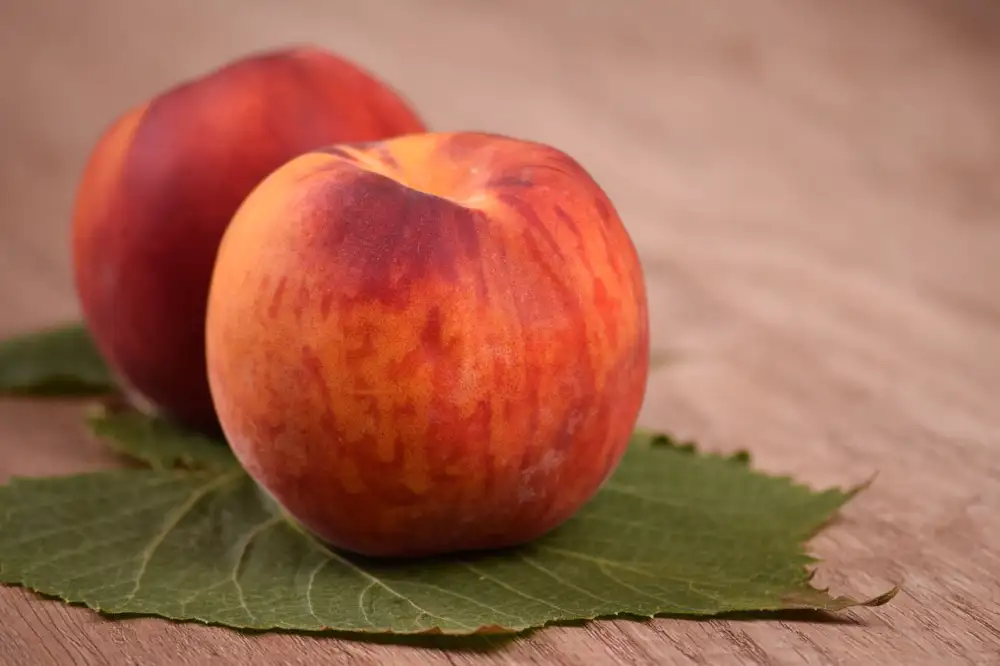Revitalize Your Health with a Juice Diet: Unlock the Power of Juices for a Vibrant You!

Are you looking for a natural and effective way to revitalize your health? Look no further than the juice diet! This popular and rejuvenating approach to nutrition has gained immense popularity in recent years, and for good reason. By incorporating fresh, nutrient-rich juices into your daily routine, you can unlock the power of fruits and vegetables to achieve a vibrant and energetic lifestyle. In this article, we will explore the benefits of the juice diet, how it works, types of juices to include, tips for success, potential risks, and frequently asked questions. Get ready to embark on a journey towards a healthier you with the incredible juice diet!
Benefits of the Juice Diet
The Juice Diet offers numerous benefits for those looking to revitalize their health. Firstly, it provides a concentrated dose of essential vitamins, minerals, and antioxidants that are easily absorbed by the body. This helps to strengthen the immune system and promote overall well-being. Secondly, the high water content in juices helps to hydrate the body and flush out toxins, leading to improved digestion and clearer skin. Additionally, the Juice Diet can aid in weight loss as it is low in calories but still provides necessary nutrients. Lastly, incorporating fresh fruits and vegetables into your diet can boost energy levels and enhance mental clarity. With all these benefits, it's no wonder that more people are turning to the Juice Diet for a vibrant and healthy lifestyle.
How the Juice Diet Works
The juice diet works by replacing solid foods with fresh, nutrient-rich juices. By consuming only juices for a period of time, typically ranging from a few days to a few weeks, your body is able to detoxify and rejuvenate.
During the juice diet, your digestive system gets a break from processing solid foods, allowing it to focus on absorbing the vitamins, minerals, and antioxidants present in the juices. This influx of nutrients helps to nourish your cells and promote overall health.
Additionally, the high water content in juices helps to hydrate your body and flush out toxins. This can lead to improved digestion, increased energy levels, and clearer skin.
By eliminating processed foods and focusing on natural ingredients, the juice diet also supports weight loss. The low calorie content of juices combined with their high nutritional value can help you shed excess pounds while still providing essential nutrients.
It's important to note that the duration of the juice diet should be tailored to individual needs and goals. Consulting with a healthcare professional or nutritionist is recommended before starting any new dietary regimen.
Overall, the juice diet works by providing your body with an abundance of vitamins, minerals, and antioxidants while giving your digestive system a break. It can help revitalize your health and leave you feeling vibrant and refreshed.
Types of Juices to Include in the Diet
When it comes to the juice diet, there are a wide variety of juices that you can include in your daily routine. Here are some popular options:
1. Green Juice: Packed with leafy greens like spinach and kale, green juice is rich in vitamins, minerals, and antioxidants. It helps detoxify the body and promotes healthy digestion.
2. Citrus Juice: Oranges, lemons, grapefruits - citrus fruits are bursting with vitamin C and other immune-boosting nutrients. They also add a refreshing taste to your juice.
3. Beetroot Juice: Known for its vibrant color, beetroot juice is a great source of iron and folate. It supports liver function and helps improve blood circulation.
4. Carrot Juice: Carrots are loaded with beta-carotene, which converts into vitamin A in the body. This juice is excellent for promoting healthy skin and improving eye health.
5. Berry Juice: Berries like strawberries, blueberries, and raspberries are packed with antioxidants that help fight inflammation and protect against chronic diseases.
Remember to experiment with different combinations of fruits and vegetables to find the flavors that you enjoy the most.
Tips for a Successful Juice Diet
1. Start Slow: Ease into the juice diet by gradually replacing one meal with a juice and then gradually increase the number of meals replaced.
2. Choose Fresh and Organic: Opt for fresh, organic fruits and vegetables to ensure maximum nutritional value and minimize exposure to pesticides.
3. Mix it Up: Experiment with different combinations of fruits and vegetables to keep your taste buds excited and to ensure a variety of nutrients in your diet.
4. Stay Hydrated: In addition to consuming juices, remember to drink plenty of water throughout the day to stay hydrated.
5. Listen to Your Body: Pay attention to how your body feels during the juice diet. If you experience any discomfort or unusual symptoms, consult a healthcare professional.
6. Incorporate Fiber: While juicing removes most of the fiber from fruits and vegetables, consider adding some fiber-rich ingredients like chia seeds or flaxseeds to your juices for added benefits.
7. Plan Ahead: Prepare your juices in advance and store them properly in airtight containers to make it easier to stick with the diet even on busy days.
8. Seek Support: Join online communities or find a juice cleanse buddy who can provide motivation, share recipes, and offer support during your journey.
Remember, consulting with a healthcare professional before starting any new diet is always recommended for personalized advice tailored to your specific needs and health conditions.
Potential Risks and Considerations
While the juice diet can offer numerous health benefits, it is important to be aware of potential risks and considerations before embarking on this dietary plan.
1. Nutrient Deficiencies: Although juices are packed with vitamins and minerals, they may lack certain essential nutrients like protein, fiber, and healthy fats. It is crucial to ensure you are still getting these nutrients from other sources to maintain a balanced diet.
2. Caloric Intake: Juices can be low in calories, which may lead to rapid weight loss. However, consuming too few calories for an extended period can result in muscle loss, nutrient deficiencies, and a slower metabolism.
3. Blood Sugar Control: Juices made primarily from fruits can cause spikes in blood sugar levels due to their high sugar content. This can be problematic for individuals with diabetes or those struggling with blood sugar regulation.
4. Digestive Issues: Some people may experience digestive discomfort such as bloating or diarrhea when consuming large quantities of juice due to the high concentration of natural sugars and lack of fiber.
5. Sustainability: The juice diet is often used as a short-term cleanse or detox program. Sustaining this type of diet long-term may be challenging and could lead to feelings of deprivation or boredom.
Before starting a juice diet, it is advisable to consult with a healthcare professional or registered dietitian who can provide personalized guidance based on your specific needs and health conditions. They can help you create a well-rounded plan that addresses any potential risks or concerns while maximizing the benefits of the juice diet for your overall health and well-being.
Frequently Asked Questions about the Juice Diet
1. Is the juice diet suitable for everyone?
The juice diet can be beneficial for most people, but it is important to consult with a healthcare professional before starting any new diet, especially if you have any underlying health conditions.
2. Can I consume solid food while on the juice diet?
The juice diet typically involves consuming only juices for a certain period of time. However, some variations allow for small amounts of solid foods like fruits and vegetables. It is best to follow a plan that suits your individual needs and goals.
3. How long should I follow the juice diet?
The duration of the juice diet varies depending on your goals and preferences. Some people choose to do a short cleanse for a few days, while others may follow it for several weeks or even longer. Listen to your body and adjust accordingly.
4. Can I exercise while on the juice diet?
Moderate exercise is generally safe during the juice diet, but it's important to listen to your body's energy levels and adjust accordingly. Avoid intense workouts and focus on gentle activities like walking or yoga.
5. Will I lose weight on the juice diet?
Many people experience weight loss during the juice diet due to its low-calorie nature. However, individual results may vary. It's important to remember that weight loss should not be the sole focus; prioritize overall health and well-being.
6. Can I drink store-bought juices instead of making my own?
While fresh homemade juices are ideal, store-bought options can be convenient alternatives. However, make sure to choose juices without added sugars or preservatives, and always check the labels for quality ingredients.
7. Are there any side effects of the juice diet?
Some individuals may experience mild side effects such as headaches or fatigue during the initial stages of the juice diet as their bodies adjust to a new routine. Staying hydrated and listening to your body can help alleviate these symptoms.
8. Can I continue the juice diet long-term?
The juice diet is not meant to be a long-term solution. It is best used as a short-term cleanse or as part of a balanced and varied diet. Consult with a healthcare professional for personalized advice on incorporating juices into your long-term eating habits.
By addressing these frequently asked questions, you can make informed decisions about whether the juice diet is suitable for you and how to approach it in a safe and effective manner. Remember to prioritize your health and listen to your body throughout the process.
In conclusion, the juice diet is a powerful way to revitalize your health and unlock a vibrant version of yourself. By incorporating fresh, nutrient-rich juices into your daily routine, you can experience numerous benefits such as increased energy levels, improved digestion, glowing skin, and weight loss.
Remember to choose a variety of fruits and vegetables for your juices to ensure you are getting a wide range of vitamins and minerals. Experiment with different combinations and flavors to keep things interesting. And don't forget to stay hydrated by drinking plenty of water alongside your juices.
While the juice diet can be an effective way to detoxify and nourish your body, it's important to consult with a healthcare professional before starting any new diet or cleanse. They can help tailor a plan that suits your individual needs and address any potential risks or concerns.
So why not embrace the health benefits of the juice diet? Start incorporating these delicious creations into your daily routine and experience the transformative power of fresh juices for yourself. Cheers to a vibrant you!
Published: 11. 12. 2023
Category: Health



